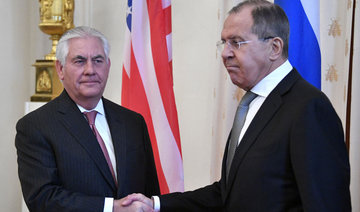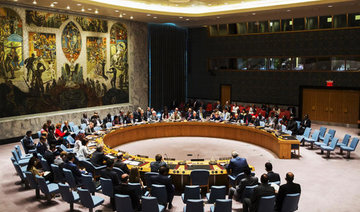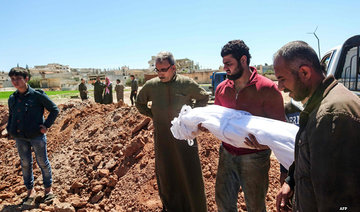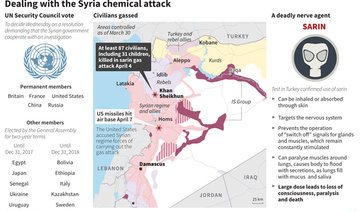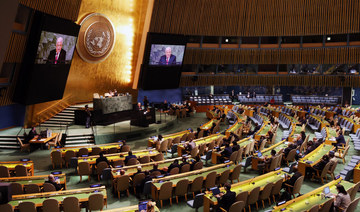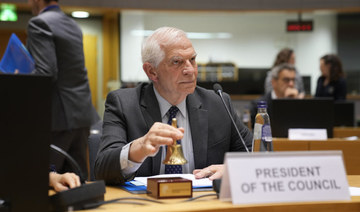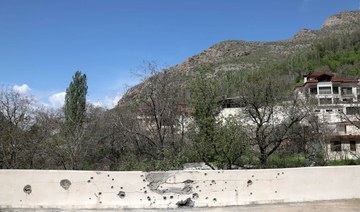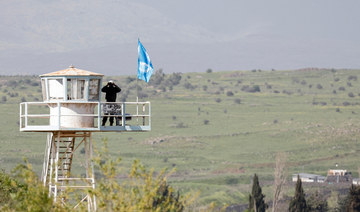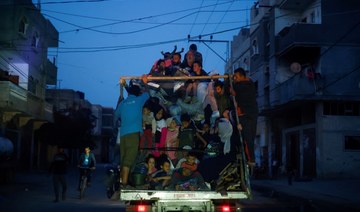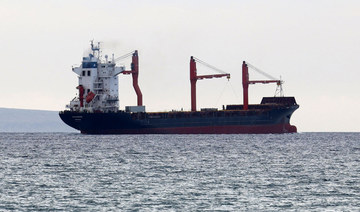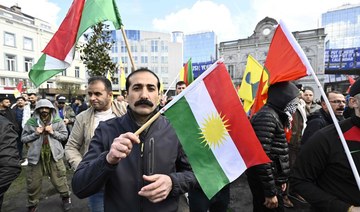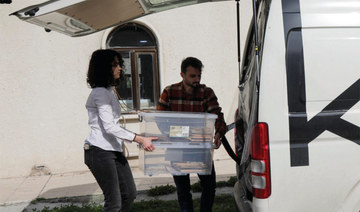In the early hours of April 7, the US military launched a series of missile strikes against an air base in northern Syria, in retaliation for the Syrian regime’s chemical weapons attack against civilians three days earlier.
The strike shows that President Donald Trump is more willing to use military force in Syria than his predecessor, Barack Obama. But it raises another crucial question: Why would Syrian President Bashar Assad, whose regime has consolidated control over Syria’s largest cities in the past year and put the opposition on the defensive, risk a new international backlash by using chemical weapons? If he’s winning, why would Assad take such a risk?
The answer lies in Assad’s refusal to compromise or offer any significant concessions since the Syrian uprising began in March 2011, and later morphed into a civil war. Assad overplayed his hand this time, after being emboldened by recent statements from White House officials that it was time for Western powers to accept the “political reality” of Assad’s continued dominance. Assad likely decided to test those boundaries, not expecting Trump to respond militarily because the US president has made it clear that he sees fighting Islamic State as his highest priority in Syria and Iraq.
Aside from his brutality – the war has killed more than 500,000 people and displaced nearly half of Syria’s population – Assad’s staying power is rooted in a convoluted foreign policy, pioneered by his father, Hafez Assad. Syria played the role of a regional broker and Arab nationalist standard-bearer since 1970, when the elder Assad seized power through a military coup. He perfected the art of creating defensive alliances, nurturing proxies in neighboring countries and keeping his enemies stalled in costly battles.
Since he rose to power after his father’s death in June 2000, the younger Assad learned to keep all of his options open, and to play Syria’s friends and enemies off one another. Assad has portrayed himself as the only one capable of keeping Syria’s army and other state institutions from disintegrating, and preventing the country from falling entirely into the grip of Islamic extremists. To the West, Assad projected himself as the lesser evil – compared to Islamic State, and other jihadists affiliated with Al-Qaeda – even if his regime has instigated more death and destruction than his enemies.
Assad seems determined to replicate the foreign policy of his past, when he was able to hold on to power by being brutal, focusing outward and waiting for regional dynamics to change in his favor. To endure the pressure and international isolation imposed by the George W. Bush administration after its invasion of Iraq in 2003, Assad relied on his father’s foreign policy. The younger Assad feared that Syria was vulnerable to an American invasion, so his regime facilitated the recruiting, training and safe passage for hundreds of Syrian and foreign volunteers to join Al-Qaeda in Iraq to fight US troops and destabilize the Iraqi government.
When popular protests first swept the Arab world in early 2011, Assad was confident that he had nothing to fear because he continued his father’s foreign policy legacy – he did not depend on American military and political support like the leaders of Tunisia, Egypt, Bahrain and Yemen.
Instead, Assad and his allies formed the “axis of resistance” – Iran, Syria and the Islamist militant groups Hezbollah and Hamas. They boasted that the revolts had proven that they are the true representative of the majority of people in the Arab and Muslim worlds, who for decades had been stifled under regimes that “sold out” to the United States.
In refusing to make substantial concessions, Assad has relied on another tactic he learned from his father: The Syrian regime does not make compromises under pressure, whether external or internal, and this principle had served it well in times of crisis. Assad also saw the initial response to popular protests in Tunisia and Egypt, and he likely concluded that by not cracking down forcefully, those rulers appeared weak and encouraged protesters to broaden their demands. So when his own people revolted, Assad decided to hunker down and crush the uprising.
At the start of the rebellion in 2011, Assad used Islamic militants to destabilize his opponents, as he had done nearly a decade earlier in Iraq. The Syrian regime released hundreds of Al-Qaeda activists and other militants from its prisons, and they went on to become leaders of Islamic State and other jihadist groups. Many of those militants ended up fighting Assad’s regime, but they also became the focus for Western leaders worried about jihadist attacks in their own countries.
Throughout the presidential campaign, Trump said he wanted to avoid direct US involvement in the Syrian conflict, which has expanded into a regional proxy war. Russia and Iran, along with Shi’ite militias like Lebanon’s Hezbollah, helped Assad consolidate control and regain territory he lost to the opposition. In December, with intensive Russian air strikes and Iranian ground support, Assad recaptured the opposition-held sections of Aleppo, Syria’s largest city. It was Assad’s biggest victory since the war began.
After Trump was elected, Assad became more confident because Trump had pledged to end US support for the opposition fighting the Syrian regime and direct most American efforts to fighting Islamic State. Assad and his allies have rarely fought directly against the jihadist group, which established its self-proclaimed capital in the eastern city of Raqqa.
Since November, the United States has helped mobilize nearly 50,000 Kurdish and Sunni Arab fighters to encircle Raqqa, and cut it off from all sides. The offensive is supported by American air strikes and hundreds of US troops. But Trump’s missile strikes could slow the offensive to oust Islamic State from Raqqa and other parts of eastern Syria. The Pentagon coordinates with Russian forces in Syria, especially in launching air strikes, and Russian officials threatened to suspend the communications hotline after the April 7 US attack on the Syrian airfield.
Analysis: Why Assad used chemical weapons
Analysis: Why Assad used chemical weapons
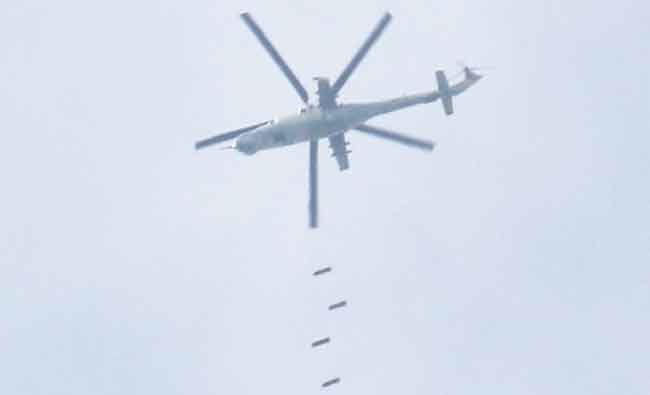
UN General Assembly backs Palestinian bid for membership
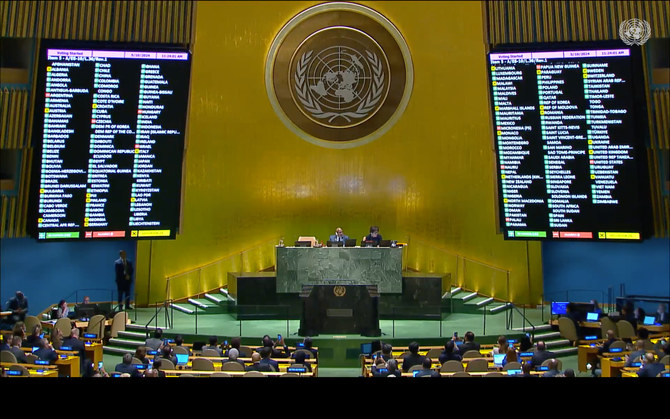
- Vote by 193-member General Assembly a global survey of support for Palestinian bid to become full member
- Palestinians currently non-member observer state, de facto recognition of statehood granted in 2012
NEW YORK CITY: The United Nations General Assembly on Friday backed a Palestinian bid to become a full UN member by recognizing it as qualified to join and recommending the UN Security Council “reconsider the matter favorably.”
The vote by the 193-member General Assembly was a global survey of support for the Palestinian bid to become a full UN member — a move that would effectively recognize a Palestinian state — after the United States vetoed it in the UN Security Council last month.
The assembly adopted a resolution on Friday with 143 votes in favor and nine against — including the US and Israel — while 25 countries abstained. It does not give the Palestinians full UN membership, but simply recognizes them as qualified to join.
The General Assembly resolution “determines that the State of Palestine ... should therefore be admitted to membership” and it “recommends that the Security Council reconsider the matter favorably.”
The Palestinian push for full UN membership comes seven months into a war between Israel and Palestinian militants Hamas in the Gaza Strip, and as Israel is expanding settlements in the occupied West Bank, which the UN considers to be illegal.
“We want peace, we want freedom,” Palestinian UN Ambassador Riyad Mansour told the General Assembly before the vote. “A yes vote is a vote for Palestinian existence, it is not against any state. ... It is an investment in peace.”
“Voting yes is the right thing to do,” he said in remarks that drew applause.
Under the founding UN Charter, membership is open to “peace-loving states” that accept the obligations in that document and are able and willing to carry them out.
“As long as so many of you are ‘Jew-hating,’ you don’t really care that the Palestinians are not ‘peace-loving,’” said UN Ambassador Gilad Erdan, who spoke after Mansour. He accused the Assembly of shredding the UN Charter — as he used a small shredder to destroy a copy of the Charter while at the lectern.
“Shame on you,” Erdan said.
The ambassador said on Monday that, if the measure was approved, he expected the US to cut funding to the United Nations and its institutions, in accordance with American law.
An application to become a full UN member first needs to be approved by the 15-member Security Council and then the General Assembly. If the measure is again voted on by the council it is likely to face the same fate: a US veto.
“The council must respond to the will of the international community,” United Arab Emirates UN Ambassador Mohamed Abushahab told the assembly before the vote.
The General Assembly resolution adopted on Friday does give the Palestinians some additional rights and privileges from September 2024 — like a seat among the UN members in the assembly hall — but they will not be granted a vote in the body.
The Palestinians are currently a non-member observer state, a de facto recognition of statehood that was granted by the UN General Assembly in 2012.
US FUNDING
The Palestinian UN mission in New York said on Thursday — in a letter to UN member states — that adoption of the resolution backing full UN membership would be an investment in preserving the long-sought-for two-state solution.
It said it would “constitute a clear reaffirmation of support at this very critical moment for the right of the Palestinian people to self-determination, including the right to their independent State.”
The mission is run by the Palestinian Authority, which exercises limited self-rule in the West Bank. Hamas ousted the Palestinian Authority from power in Gaza in 2007. Hamas — which has a charter calling for Israel’s destruction — launched the Oct. 7 attack on Israel that triggered Israel’s assault on Gaza.
The United Nations has long endorsed a vision of two states living side by side within secure and recognized borders. Palestinians want a state in the West Bank, east Jerusalem and Gaza Strip, all territory captured by Israel in the 1967 war with neighboring Arab states.
The US mission to the United Nations said earlier this week: “It remains the US view that the path toward statehood for the Palestinian people is through direct negotiations.”
Under US law, Washington cannot fund any UN organization that grants full membership to any group that does not have the “internationally recognized attributes” of statehood. The United States cut funding in 2011 for the UN cultural agency, UNESCO, after the Palestinians joined as a full member.
On Thursday, 25 US Republican senators — more than half of the party’s members in the chamber — introduced a bill to tighten those restrictions and cut off funding to any entity giving rights and privileges to the Palestinians. The bill is unlikely to pass the Senate, which is controlled by President Joe Biden’s Democrats.
Iraq requests end of UN assistance mission by end-2025
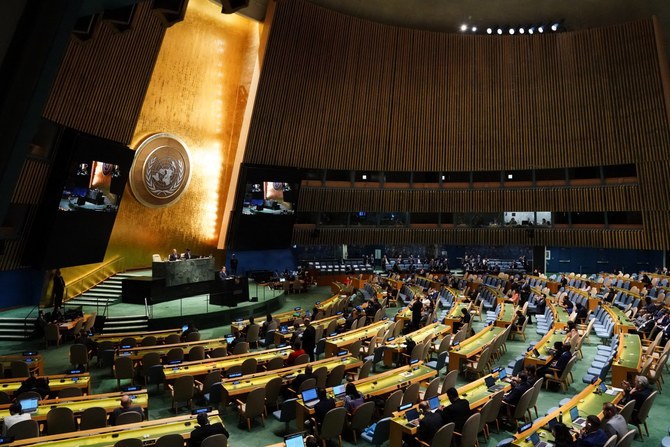
- Prime PM said Iraq wanted to deepen cooperation with other UN organizations but there was no longer a need for the political work of the UN assistance mission
BAGHDAD: Iraq has requested that a United Nations assistance mission set up after the 2003 US-led invasion of the country end its work by the end of 2025, saying it was no longer needed because Iraq had made significant progress toward stability.
The mission, headquartered in Baghdad’s heavily fortified Green Zone, was set up with a wide mandate to help develop Iraqi institutions, support political dialogue and elections, and promote human rights.
Prime Minister Mohammed Shia Al-Sudani said Iraq wanted to deepen cooperation with other UN organizations but there was no longer a need for the political work of the UN assistance mission, known as UNAMI.
The mission’s head in Iraq often shuttles between top political, judicial and security officials in work that supporters see as important to preventing and resolving conflicts but critics have often described as interference.
“Iraq has managed to take important steps in many fields, especially those that fall under UNAMI’s mandate,” Sudani said in a letter to UN Secretary-General Antonio Guterres.
Iraq’s government has since 2023 moved to end several international missions, including the US-led coalition created in 2014 to fight Islamic State and the UN’s mission established to help promote accountability for the jihadist group’s crimes.
Iraqi officials say the country has come a long way from the sectarian bloodletting after the US-led invasion and Islamic State’s attempt to establish a caliphate, and that it no longer needs so much international help.
Some critics worry about the stability of the young democracy, given recurring conflict and the presence of many heavily armed military-political groups that have often battled on the streets, the last time in 2022.
Some diplomats and UN officials also worry about human rights and accountability in a country that frequently ranks among the world’s most corrupt and where activists say freedom of expression has been curtailed in recent years.
Iraq’s government says it is working to fight corruption and denies there is less room for free expression.
Somalia’s government also requested the termination of a UN political mission this week. In a letter to the Security Council, the country’s foreign minister called for the departure of the Nations Assistance Mission in Somalia (UNSOM), which has advised the government on peace-building, security reforms and democracy for over a decade. He provided no reason.
Gaza aid could grind to a halt within days, UN agencies warn
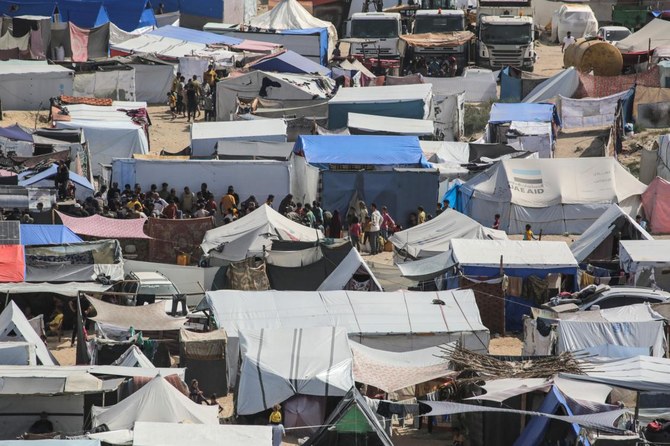
- Humanitarian workers have sounded the alarm this week over the closure of the Rafah and Kerem Shalom crossings for aid
LONDON: Dwindling food and fuel stocks could force aid operations to grind to a halt within days in Gaza as vital crossings remain shut, forcing hospitals to close down and leading to more malnutrition, United Nations aid agencies warned on Friday.
Humanitarian workers have sounded the alarm this week over the closure of the Rafah and Kerem Shalom crossings for aid and people as part of Israel’s military operation in Rafah, where around 1 million uprooted people have been sheltering.
The Israeli military said a limited operation in Rafah was meant to kill fighters and dismantle infrastructure used by Hamas, which governs the besieged Palestinian territory.
“For five days, no fuel and virtually no humanitarian aid entered the Gaza Strip, and we are scraping the bottom of the barrel,” said the UNICEF Senior Emergency Coordinator in the Gaza Strip, Hamish Young.
“This is already a huge issue for the population and for all humanitarian actors but in a matter of days, if not corrected, the lack of fuel could grind humanitarian operations to a halt,” he told a virtual briefing.
More than 100,000 people have fled Rafah in the last five days
More than 100,000 people have fled Rafah in recent days, said Young.
Israel’s military on Monday called for Gazans to leave eastern Rafah, which triggered widespread international alarm.
The UN children’s agency UNICEF said more than 100,000 had left, with the UN humanitarian agency OCHA putting the figure at more than 110,000.
All eyes have been on Rafah in recent weeks, where the population had swelled to around 1.5 million after hundreds of thousands of Palestinians fled fighting in other areas of Gaza.
Georgios Petropoulos, head of OCHA’s sub-office in Gaza, said the situation in the besieged Palestinian territory had reached “even more unprecedented levels of emergency.”
Countries around the world, including key Israeli backer the United States, have urged Israel not to extend its ground offensive into Rafah, citing fears of a large civilian toll.
Hamish Young, UNICEF’s senior emergency coordinator in the Gaza Strip, insisted Rafah “must not be invaded” and called for the immediate flow of fuel and aid into the Gaza Strip.
“Yesterday, I was walking around the Al-Mawasi zone, that people in Rafah are being told to move to,” he said, also speaking from Rafah.
“Shelters already lined Al-Mawasi’s sand dunes and it’s now becoming difficult to move between the mass of tents and tarpaulins.
AFP journalists in the Gaza Strip early Friday witnessed artillery strikes on Rafah on the territory’s southern border with Egypt.
Gaza’s bloodiest-ever war began following Hamas’s unprecedented October 7 attack on Israel that resulted in the deaths of more than 1,170 people, mostly civilians, according to an AFP tally of Israeli official figures.
Vowing to destroy Hamas, Israel has conducted a retaliatory offensive that has killed more than 34,900 people in Gaza, mostly women and children, according to the Hamas-run territory’s health ministry.
Turkiye says it killed 17 Kurdish militants in northern Iraq, Syria
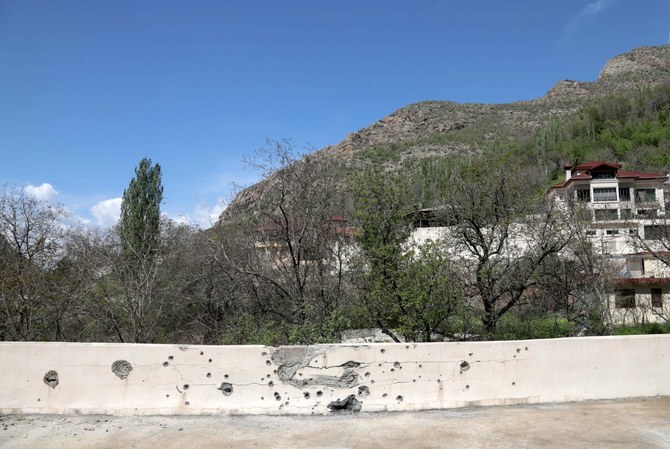
ANKARA: Turkish forces have killed 17 militants of the outlawed Kurdistan Workers Party (PKK) across various regions of northern Iraq and northern Syria, the defense ministry said on Friday.
In a post on social media platform X, the ministry said its forces had “neutralized” 10 PKK insurgents found in the Gara and Hakurk regions of northern Iraq, and in an area where the Turkish military frequently mounts cross-border raids under its “Claw-Lock Operation.”
It said another seven militants were “neutralized” in two regions of northern Syria, where Turkiye has previously carried out cross-border incursions.
The ministry’s use of the term “neutralized” commonly means killed. The PKK, which has been waging an insurgency against the Turkish state since 1984, is designated a terrorist organization by Turkiye, the United States and the European Union.
Turkiye’s cross-border attacks into northern Iraq have been a source of tension with its southeastern neighbor for years. Ankara has asked Iraq for more cooperation in combating the PKK, and Baghdad labelled the group a “banned organization” in March.
Last month, Turkish President Tayyip Erdogan held talks with officials in Baghdad and Irbil, the capital of Iraqi Kurdistan, about the continued presence of the PKK in northern Iraq, where it is based, and other issues. Erdogan later said he believed Iraq saw the need to eliminate the PKK as well.
Turkiye has also staged military incursions in Syria’s north against the YPG militia, which it regards as a wing of the PKK.
Erdogan and his ministers have repeatedly said that while Ankara is working on repairing ties with Syrian President Bashar Assad’s government after years of animosity, it will mount a new offensive into northern Syria to push the YPG away from its border.
Israeli demonstrators torch part of UN compound in Jerusalem
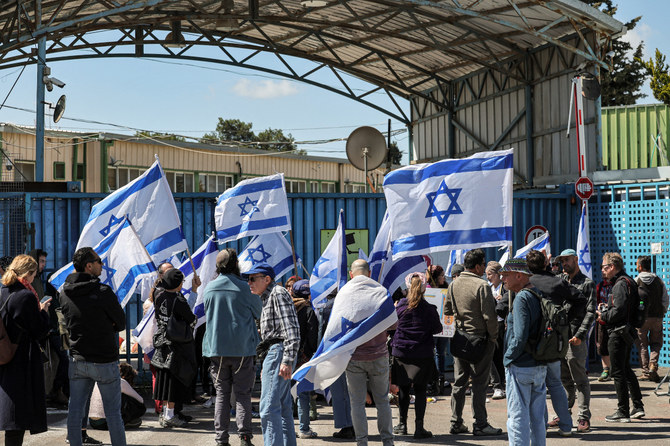
- Compound closed until proper security was restored
- Thursday’s incident was the second in less than a week
JERUSALEM: The main United Nations aid agency for Palestinians closed its headquarters in East Jerusalem after local Israeli residents set fire to areas at the edge of the sprawling compound, the agency said.
Philippe Lazzarini, the head of UNRWA, said in a post on the social media platform X that he had decided to close the compound until proper security was restored. He said Thursday’s incident was the second in less than a week.
“This is an outrageous development. Once again, the lives of UN staff were at a serious risk,” he said.
“It is the responsibility of the State of Israel as an occupying power to ensure that United Nations personnel and facilities are protected at all times,” he said.
This evening, Israeli residents set fire twice to the perimeter of the UNRWA Headquarters in occupied East Jerusalem.
— Philippe Lazzarini (@UNLazzarini) May 9, 2024
This took place while UNRWA and other UN Agencies’ staff were on the compound.
While there were no casualties among our staff, the fire caused extensive damage… pic.twitter.com/ZqHFDNkiWC
UNRWA, set up to deal with the Palestinian refugees who fled or were forced from their homes during the 1948 war around the time of Israel’s creation, has long been a target of Israeli hostility.
Since the start of the war with Gaza Israeli officials have called repeatedly for the agency to be shut down, accusing it of complicity with the Islamist movement Hamas in Gaza, a charge the United Nations strongly rejects.
Israel considers all of Jerusalem its indivisible capital, including eastern parts it captured in a 1967 war, which Palestinians seek as the future capital of an independent state.
Lazzarini said staff were present at the time of the incident but there were no casualties. However outdoor areas were damaged by the blaze, which was put out by staff after emergency services took time to respond.
There was no immediate comment from the Israeli police.
Lazzarini said groups of Israelis had been staging regular demonstrations outside the UNRWA compound for the past two months and said stones were thrown at staff and buildings in the compound this week.
In footage shared with Lazzarini’s post, smoke can be seen rising near buildings at the edge of the compound while the sound of chanting and singing can be heard.
A crowd accompanied by armed men were witnessed outside the compound chanting “Burn down the United Nations,” Lazzarini said.



